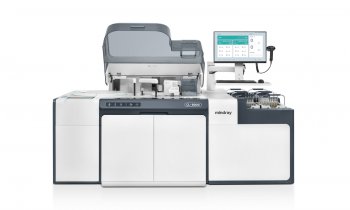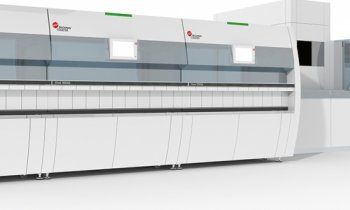Image source: Adobe Stock/unlimit3d
News • Noninvasive fetal screening
Blood test to identify genetic diseases in unborn babies
With the simplicity of a blood test, it will be possible in the future to screen pregnant women for serious genetic diseases in their unborn children.
A research team from Odense University Hospital and the University of Southern Denmark has developed an innovative screening test. With a blood sample from the expectant mother, they can scrutinize all the genes in the fetus. In the recently published results of the research project in the New England Journal of Medicine, the researchers analyzed blood samples from 36 pregnant women. The findings indicate that the new test, named desNIPT, has demonstrated effectiveness in identifying alterations in fetal genes – a leading factor in severe congenital diseases.
When applying the new analytical method, we successfully identified all gene variants responsible for diseases that were previously detected through invasive fetal examinations
Ieva Miceikaité
"With our novel approach, we can now screen for the majority of known serious genetic syndromes using a simple blood test from the pregnant woman. Typically, this would otherwise require resorting to chorionic villus sampling or amniocentesis," states Ieva Miceikaité from the Department of Clinical Research, University of Southern Denmark. "This implies that we now possess enhanced opportunities to pinpoint the genetic cause of developmental issues in the fetus," she adds.
At present, the first-generation Non-Invasive Prenatal Test (NIPT) is employed to screen the fetus for prevalent chromosomal disorders, predominantly focusing on conditions such as Down syndrome and a few others resulting from notable chromosomal alterations. "Nevertheless, numerous congenital diseases arise from more subtle modifications in fetal DNA. To identify these, it is essential to examine all genes within the fetal genome," explains Ieva Miceikaité.
This screening, referred to as exome sequencing, is presently limited to pregnancies where indications of abnormalities are noted during ultrasound scans. This restriction stems from the fact that the analysis currently necessitates either chorionic villus sampling or amniocentesis, both procedures associated with discomfort and a slight risk of miscarriage. As a result, numerous severe genetic syndromes frequently go undetected until after birth.
"Our objective was to enhance non-invasive screening options for pregnant women. The new desNIPT test integrates the benefits of NIPT and exome sequencing, delivering comprehensive insights through a more straightforward test," elucidates Ieva Miceikaité. Alongside her fellow researchers, Ieva Miceikaité monitored 36 pregnant women, analyzing blood samples taken during the 1st or 2nd trimester. In each pregnancy, ultrasound scans had revealed signs indicative of a potential serious genetic disease in the fetus. Out of the 36 pregnancies, newly arising disease-causing alterations in the unborn child were identified in a total of 11 cases. Subsequently, the results from the desNIPT analysis were compared with those from conventional exome sequencing conducted through chorionic villus sampling or amniocentesis.
"The novel approach to screening pregnant women has been remarkably successful," states Ieva Miceikaité, further noting: "When applying the new analytical method, we successfully identified all gene variants responsible for diseases that were previously detected through invasive fetal examinations. In this regard, it has demonstrated comparable effectiveness to these invasive procedures.
Promising future for prenatal screening."
"The test opens the possibility of screening for many more genetic diseases in the future, including those that cannot be revealed by ultrasound scans," explains Martin Larsen, leader of the project and associate professor at the Department of Clinical Research, University of Southern Denmark. He envisions significant potential in deploying the test as a screening tool in conjunction with ultrasound examinations – the prevailing standard for all pregnant women – to guarantee a more thorough screening of expectant mothers before childbirth.
One notable challenge with numerous screening tests is their inconsistent precision, frequently resulting in unwarranted follow-up diagnostic examinations. "We are highly optimistic as the study indicates that the desNIPT test is remarkably accurate. In the examined pregnant women, we did not observe any false-positive results," states Martin Larsen.
Since this is a "proof-of-concept" study, the test needs validation in a larger study before it can be made available to pregnant women. "At the outset, our aim was to establish the feasibility of sequencing the fetus's genes through a blood sample from the pregnant woman. Presently, our focus is on validating the test through a larger study, as well as refining and scaling the methodology," states Martin Larsen.
Source: University of Southern Denmark
05.01.2024











